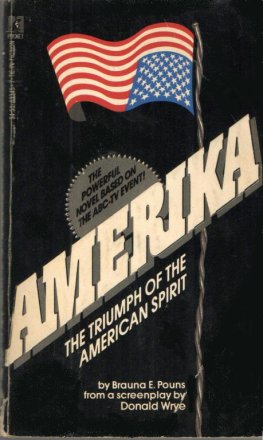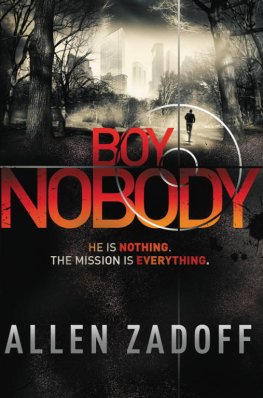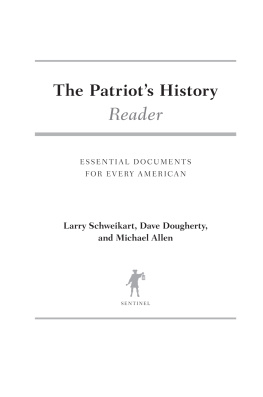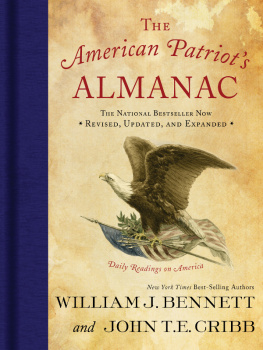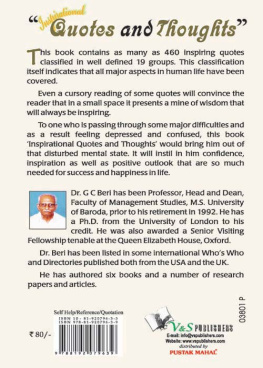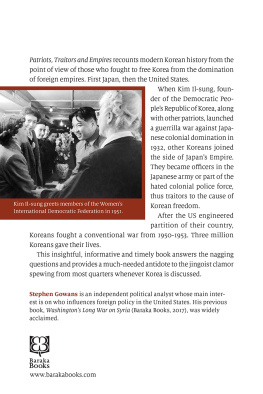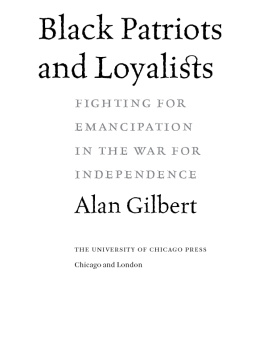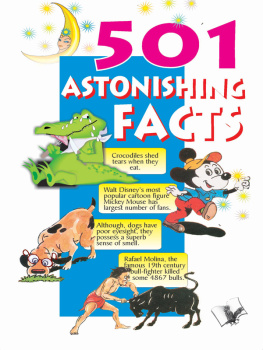Brauna Pouns - Amerika
Here you can read online Brauna Pouns - Amerika full text of the book (entire story) in english for free. Download pdf and epub, get meaning, cover and reviews about this ebook. City: New York, year: 1987, publisher: Pocket Books, genre: Science fiction. Description of the work, (preface) as well as reviews are available. Best literature library LitArk.com created for fans of good reading and offers a wide selection of genres:
Romance novel
Science fiction
Adventure
Detective
Science
History
Home and family
Prose
Art
Politics
Computer
Non-fiction
Religion
Business
Children
Humor
Choose a favorite category and find really read worthwhile books. Enjoy immersion in the world of imagination, feel the emotions of the characters or learn something new for yourself, make an fascinating discovery.
- Book:Amerika
- Author:
- Publisher:Pocket Books
- Genre:
- Year:1987
- City:New York
- ISBN:978-0671633455
- Rating:3 / 5
- Favourites:Add to favourites
- Your mark:
- 60
- 1
- 2
- 3
- 4
- 5
Amerika: summary, description and annotation
We offer to read an annotation, description, summary or preface (depends on what the author of the book "Amerika" wrote himself). If you haven't found the necessary information about the book — write in the comments, we will try to find it.
Amerika — read online for free the complete book (whole text) full work
Below is the text of the book, divided by pages. System saving the place of the last page read, allows you to conveniently read the book "Amerika" online for free, without having to search again every time where you left off. Put a bookmark, and you can go to the page where you finished reading at any time.
Font size:
Interval:
Bookmark:
Brauna E. Pouns
AMERIKA
The Triumph of the American Spirit
A Novel
Based on a screenplay by Donald Wrye
Prologue
In the history of human folly, arrogant fantasies of military supremacy and pathetic illusions of national safety have played a crucial role. The Great Wall of China, the Spanish Armada, the Maginot Lineall were thought to be impregnable. All fell. And with them fell not only governments, but ideals, not only nations, but those unique aspects of the human spirit that were embodied in each conquered civilization.
Through most of the 1980s, the United States of America had regarded itselfand was regarded by the rest of the worldas the mightiest and therefore most secure nation the world had ever seen; it seemed to dawn on no one that those two notions did not necessarily go hand in hand. The American defense system represented the perfect combination of American skill and American will, of vast wealth and limitless ingenuity applied to the problems of survival for this hardiest of peoples. In fact, the U.S. military had evolved the most sophisticated weaponry and communications networks ever known to man.
With that sophistication, however, came a vast complexity, and with that complexity came danger. The taller a building gets, the more it sways in the wind; the longer a bridge, the less it takes to send the whole span crashing. So it was with the American system of defense. Paradoxically, as the system grew more powerful, it grew more fragile; as it took on more and more weight and bulk, it came ever closer to teetering. Some few men and women, both inside the government and out, were aware of this. As in ages past, their voices were not heard.
As these voices of caution were ignored in Washington, however, voices of opportunity were listened to closely in Moscow. In the waning days of the 1980s, the leaders of the Soviet Union, beset by paralyzing economic woes and growing domestic unrest, had less to lose than to gain by gambling on a massive rearrangement of the balance of power in the world. Without warning, on a quiet Tuesday morning, the Russians took the headiest gamble in the history of warfare by launching a nuclear attack against America.
But this attack was no storybook Armageddon of mushroom clouds bursting over cities, of scalded millions murdered in their homes. This was a new sort of war, conceived in shocking simplicity by Soviet scientists. The premise: dont attack targets. Attacking targets, after all, even with nuclear missiles, was essentially as primitive as throwing stones. What mattered was not the individual bases and silos, but rather the electronic network that linked them as an effective whole. The key, then, was to attack and disable the communication systems among the targets, thereby crippling the entire system.
High in the stratosphere above America, four enormous nuclear devices were detonated. On earth, the explosions were heard only as a low rumble. No one was hurt by the blasts, nor did they generate a dangerous amount of fallout; no one even felt the concussive power of the bombs. But the explosions were felt by every computer circuit, every telephone line, every banking system, and every electrical plant from Maine to San Diego. The detonations created a vast electromagnetic pulse (EMP) that was like a hundred thousand bursts of lightning focused insidiously on Americas nervous system. Vast stores of computer memory were instantly erased. The coils of electric generators sizzled and seized. Telephones went dead. The Age of Communications ended in a millisecond, and with it ended Americas military, political, and economic hegemony.
The conquest of America, incredibly, had been effected without taking a single life. American missiles stood unharmed in their silos, but could not be activated. Around the world, American forces, their ranks undiminished, were at the ready, but could not be issued orders. In Washington, the American president was given an agonizing and humiliating choice: surrender and agree to unilateral disarmament, the virtual destruction of the dollar, and the essential end of national sovereignty; or resist, fight back with whatever sundered forces could be mustered, and face certain annihilation.
This choice was not a choice at all for a leader who valued human life. With dizzying, incomprehensible suddenness, the United States of America was under the thrall of the Russians.
With Soviet rule came a dizzying torrent of euphemisms and double-speak. The conquestby far the most cataclysmic and humiliating event in all of American historywas tamely dubbed the Transitionas if the shift from capitalism and freedom to communism and subjugation was indeed an inevitable progression. Thousands of loyal citizens were redefined as subversives and forced to leave the cities, where, in concentration, they could be troublesome to the new authorities. They were called Exilesand it was true that their homeland had abandoned them. The most committed of the Exiles became Resistersguerrilla fighters who endured the most crushing hardships and dangers in the name of those values that, only yesterday, had been the norm. Under the system of the conquerors, logic was stood on its head and language itself was recruited into the service of erasing history.
But who were these Soviets who were now Americas administrators, overseers, bosses? Oddly, they did not conform at all closely to our hysterical, Gold War images of them. They were not beetle-browed commissars, nor were they blustering boors who swilled vodka and spouted rigid ideological platitudes. They were modem men and womencultured, pragmatic, efficient, very often charming, and generally humane. They had humor, they had desires, and they had a vision. Their vision was of a world united and running as a single mechanism according to the precepts of Marx and Lenin. To each according to his need; from each according to his ability.
On its face, the prescription was benign enough. Could any thinking person claim that the rhetoric was less dignified or loftyor even essentially different than the thrilling pronouncements of Jefferson and Lincoln on which the American republic had been based? The Soviets came not to conquer by force, but to win a more total victory by imposing an alternate mythology.
They were, offering peace. It was a sort of peace that the great majority of Americansall those who wanted nothing more from their time on earth than to preserve some fraction of the security and comfort theyd known beforeaccepted with appalling ease.
It was a sort of peace against which some few Americanskeeping alive the spark of freedom in its armor of defiancevowed to wage the most intimate and sacred form of battle.
This is the story of three men, each of whom fought for his vision of what the New America might become. Devin Milfordonce a candidate for president, now stigmatized as a criminalwas the defiant one, a man who insisted that the real world of politics and power conform to his ideal of a united America.
Peter Bradford was the pragmatic one, an honest man committed to the principle of compromise and to practical approaches to problems that could not really be solved.
Andrei Denisov was the complex one, the enemy and not the enemy, the KGB colonel who harbored a love for America that the Americans themselves had lost.
Most important, this is the story of a people searching for their noblest selves under circumstances that had long been feared, but never truly imagined.
Chapter 1
Devin Milford stood in semidarkness. A single, glaring light caught his eyeshaunted eyes that lay deep in their sockets. He walked to the window. It was barred. Outside, the first light of dawn washed over the bleak west Texas desert, with its bleached sand and gray scrub stretching off to the horizon. He looked past the well-worn wooden barracks, beyond the electrified fences and watchtowers, and scanned the distance. Far off, a hawk circled, gracing the early-morning light with its fringed wings and noble head. Devin ached for the freedom he had lost, the freedom he still dreamed of recapturing.
Font size:
Interval:
Bookmark:
Similar books «Amerika»
Look at similar books to Amerika. We have selected literature similar in name and meaning in the hope of providing readers with more options to find new, interesting, not yet read works.
Discussion, reviews of the book Amerika and just readers' own opinions. Leave your comments, write what you think about the work, its meaning or the main characters. Specify what exactly you liked and what you didn't like, and why you think so.

